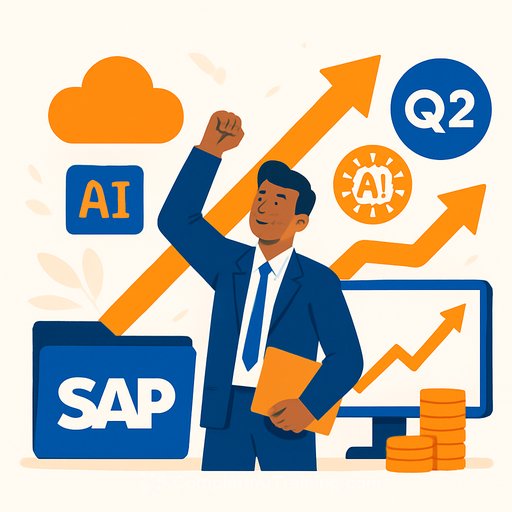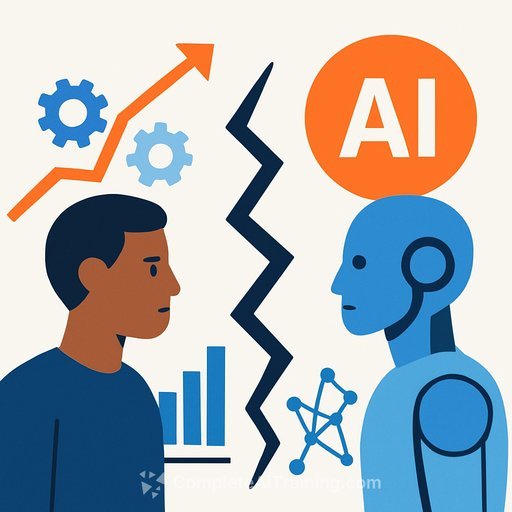SAP Reports Strong Q2 Results Amid Rising Demand for Cloud and AI
SAP delivered impressive Q2 performance, reflecting growing global demand for its cloud software, AI tools, and data platforms. Despite economic and geopolitical challenges affecting IT budgets in some sectors, the company’s investments in cloud infrastructure and business AI are paying off.
CEO Christian Klein highlighted that while some industries like the U.S. public sector and manufacturing are delaying purchases due to trade concerns, SAP remains well-positioned. “Whatever the market environment may bring, SAP is well prepared,” Klein said during the earnings call. He emphasized the company’s focus on product innovation and improving internal productivity through AI.
Strong Cloud Growth and AI Investments
Cloud revenue increased by 28% in the quarter, with SAP’s core Cloud ERP suite—covering finance, supply chain, and HR applications—growing 34%. This marks over three years of consistent double-digit growth for SAP’s cloud ERP business. Total revenue rose 12% to €9 billion (US$9.8 billion), while operating profit climbed 35% to €2.6 billion (US$2.84 billion). These gains stem from cloud expansion, cost management, and SAP’s internal use of AI tools to boost efficiency.
SAP is heavily investing in AI-powered “agents” that automate routine business tasks. In the first half of 2025, it launched 14 such agents capable of generating quotes, managing expense reports, resolving service disputes, and assisting with financial forecasting. The company aims to offer 40 AI agents by year-end.
Additionally, SAP is building its business data cloud platform, which helps companies analyze and leverage data more effectively across operations. New customers like Adobe, GSK, and BAE Systems have adopted this platform. SAP is also strengthening its partnership with Palantir to enhance data capabilities.
New Features Focused on Data Sovereignty and Efficiency
With growing demands for data control from governments and corporations, SAP is emphasizing end-to-end data sovereignty. This includes features like “bring your own key” encryption, localized data centers, and compatibility with global cloud providers as well as local infrastructure.
Recent public sector wins include Germany’s federal pension agency and the German Armed Forces, which signed contracts for SAP’s analytics, project management, and AI tools.
Internally, SAP uses its AI assistant Joule to improve operations. Klein shared that these digital tools have boosted developer productivity by 30%, cut HR support response times by 20%, and improved sales team efficiency by up to 50%. These improvements have helped contain costs and enhance profit margins. “AI will increase productivity—not just at SAP, but across industries,” Klein said.
Financial Outlook and Market Challenges
CFO Dominik Asam confirmed SAP’s full-year outlook remains unchanged but acknowledged longer sales cycles in sectors tied to government procurement and manufacturing due to trade and regulatory uncertainties. Despite this, SAP’s cloud backlog rose 28% to €18.1 billion (US$19.8 billion), and free cash flow jumped 83% to €2.4 billion (US$2.63 billion).
Asam stressed disciplined execution and cost control to prepare for less favorable market conditions. Most new cloud business is expected to close in the second half of the year, consistent with SAP’s typical sales patterns.
Looking forward, SAP is betting on continued AI and data tool innovation to stay ahead of shifting customer priorities.
Your membership also unlocks:






